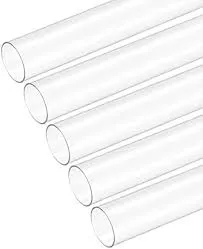Nov . 18, 2024 12:28 Back to list
Exploring Various Types of Connectors for PVC Pipe Applications and Installations
Understanding PVC Pipe Connectors A Comprehensive Guide
PVC pipe connectors are crucial components in the plumbing and construction industries, often used to create a strong and reliable piping system. Polyvinyl chloride (PVC) is a popular material due to its affordability, durability, and resistance to corrosion. This article delves into the different types of PVC pipe connectors, their applications, and key benefits, aiding homeowners and professionals alike in making informed decisions.
Types of PVC Pipe Connectors
1. Slip Connectors These are among the most commonly used PVC connectors. They allow two pieces of pipe to be connected by slipping the ends into the connector. Slip connectors are versatile and can be used in various plumbing projects, including drain and waste systems.
2. Tee Connectors Tee connectors are shaped like the letter T and enable two pipes to branch off from a single main line. These connectors are essential in applications that require splitting the flow of water or other fluids, making them indispensable in irrigation systems.
3. Elbow Connectors Elbow connectors come in various angles, with 90-degree and 45-degree being the most common. They are used to change the direction of the piping system, facilitating bends and turns in plumbing installations. Elbows are especially useful in tight spaces where a straight pipe would be impractical.
4. Couplings Couplings are designed to join two pieces of pipe end-to-end, allowing for longer runs of piping. They are available in various diameters and can connect pipes of different sizes, making them an essential tool for any plumbing project.
5. End Caps These connectors are used to seal the end of a PVC pipe, preventing the flow of fluids. End caps are vital in systems where it's necessary to close off a section of piping temporarily or permanently.
pvc pipe connectors

Applications of PVC Pipe Connectors
PVC pipe connectors are widely utilized in various applications, including residential plumbing, industrial waste management, and irrigation systems. In home plumbing, they facilitate efficient wastewater removal and ensure dependable water supply lines. Commercially, they are used in larger scale constructions, such as sewage systems and drainage solutions. The versatility of PVC connectors makes them suitable for both indoor and outdoor projects, including garden irrigation and swimming pool plumbing.
Benefits of Using PVC Pipe Connectors
One significant advantage of PVC pipe connectors is their resistance to corrosion and chemical damage. Unlike metal pipes, which may rust over time, PVC maintains its integrity when exposed to moisture and various chemicals. Additionally, PVC is lightweight, making it easier to transport and install. The affordability of PVC connectors means they provide a cost-effective solution for many plumbing needs without compromising quality.
Moreover, PVC pipe connectors are straightforward to work with. They typically require minimal tools for installation, often involving just PVC cement and a cutting tool. This ease of use can save both time and labor costs, making them an attractive option for DIY enthusiasts and professionals alike.
Conclusion
In summary, PVC pipe connectors play a pivotal role in creating effective plumbing and construction systems. With various types available, including slip connectors, tees, elbows, couplings, and end caps, they offer flexibility and reliability for numerous applications. Their durability, resistance to corrosion, and affordability make them an excellent choice for both residential and commercial projects. Whether you're a seasoned plumber or a homeowner tackling a DIY project, understanding PVC pipe connectors is essential to ensuring a successful outcome.
-
High-Quality PPR Pipes and Fittings Durable ERA PPR & PVC PPR Solutions
NewsJul.08,2025
-
Black HDPE Cutting Board - Durable, Non-Porous & Food Safe HDPE Plastic Cutting Board
NewsJul.08,2025
-
High-Quality CPVC Panel Durable HDPE & PVC Panels Supplier
NewsJul.08,2025
-
Double PE Welding Rod Supplier - High Strength, Durable & Versatile Welding Solutions
NewsJul.07,2025
-
High-Quality PVC-O Pipe Supplier Durable 75mm PVC Pipe & Connections Leading PVC Pipe Company
NewsJul.07,2025
-
HDPE Drainage Pipe Supplier – Durable & Corrosion-Resistant Solutions
NewsJul.06,2025

